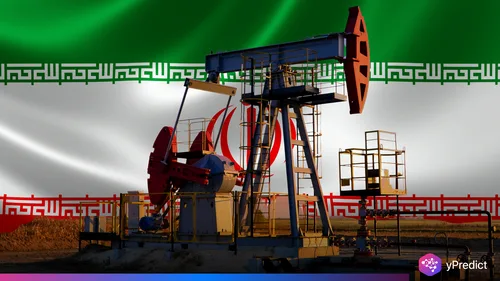
In a notable development in diplomacies, India approached the United States to seek an exemption slowing crude oil imports from Iran and Venezuela, in an effort to mitigate India’s dependency on Russian oil, which is a matter of concern in increasing tensions in Washington. Officials from India told their counterparts in the U.S. that halting imports from Russia at the same time as halting imports from Iran and Venezuela will help push oil prices up on the world market and drive the energy security for all countries lower.
This shows the care with which India is balancing needing to satisfy their energy needs and addressing the consequences of the geopolitical. India is hoping to acquiesce to Western sanctions but still rely on energy, by substantively diversifying its oil suppliers. This request also demonstrates Indian attempts regulate towards autonomy in energy security in the complicated international environment.
The Geopolitical Context: U.S. Tariffs and India’s Oil Imports
In August of 2025, the U.S. levied a 25 percent tariff on Indian goods, which was increased to 50 percent by the end of the month. The U.S. imposed a tariff, because it views India’s continued importation of Russian oil (effectively and indirectly) as support for Russia’s geopolitical actions. After the tariffs were imposed, India continued its oil imports from Russia as the discounted price still benefited the economy.
Indian officials contend that U.S. sanctions imposed on Venezuelan and Iranian oil have stopped India from diversifying its energy import sources. If the U.S. were to allow imports from the countries, it could relieve India of some dependency on energy from Russia without negatively impacting its own energy security. This point illustrates the challenges of balancing geopolitical trade policy with foreign energy diplomacy.
India’s Proposal: A Strategic Diversification of Oil Sources
India’s request to the U.S. is not just about cheaper oil. It is instead a strategic effort to boost its energy import diversification.Crude oil from Iran and Venezuela, often at a steep discount because of sanctions, can be considered substitutes for Russian oil. Utilizing those in combination with Russian sources may help India boost its energy security as it tries to navigate geopolitical hurdles.
The Indian delegation held talks with U.S. officials about the possible merits of diversification. They were able to argue that access to Iranian and Venezuelan oil could stabilize the world oil market by ensuring that no source of supply would create any disruption. These points are consistent with India’s larger story of diversification and energy resilience.
The U.S. Perspective: Balancing Sanctions with Strategic Interests
The U.S. administration is managing a careful balancing act. On the one hand, it wants to punish Russia for its behavior. On the other, it has to be conscious of the ripple effects of its sanctions on global oil markets. The Trump administration has expressed concerns that grounding oil from Russia, Iran, and Venezuela together could lead to elevated global oil pricing that would affect consumers and economies around the world.
Chris Wright, the U.S. Energy Secretary, is open to engaging India on energy trade, stating that the U.S. does not want to punish India, but end the war in Ukraine. The U.S.’s willingness to engage India comes after Wright’s statement and allows for a possible negotiation, which could manifest in less strict sanctions on Russia as long as the imports of energy are not in conflict with U.S. geopolitical aspirations.
Potential Implications for Global Oil Markets
Permitting India to source oil from Iran and Venezuela could have various consequences for the global oil markets. First, it could relieve some supply constraints via diversification. Second, it could stabilize global prices as it would mitigate risk from any single supplier. And third, it could encourage other states to seek similar arrangements, in turn leading to a more robust and equitable market for energy globally.
However, this change presents risks. It could upset current sanctions and affect the nature of the energy trade.The United States and its allies would need to be wary of the effects of the policy change and to consider whether they fit into their long term strategic objectives.
India’s Energy Security Strategy
India’s approach to energy security is evolving. In a bid to diversify and not rely solely on one country for oil imports, India is actively doing to build a more resilient energy system. Working with traditional suppliers through engagement techniques, while also exploring new partnerships and energy sources, are all part of the plan.
When it talks about the idea to import oil from Iran and Venezuela, it highlights India’s pragmatic approach towards its energy future. This pragmatic approach demonstrates use in both economic and geopolitical considerations. As global energy dynamics continue to evolve, India’s energy security plan should help shape the future of global energy trading.







